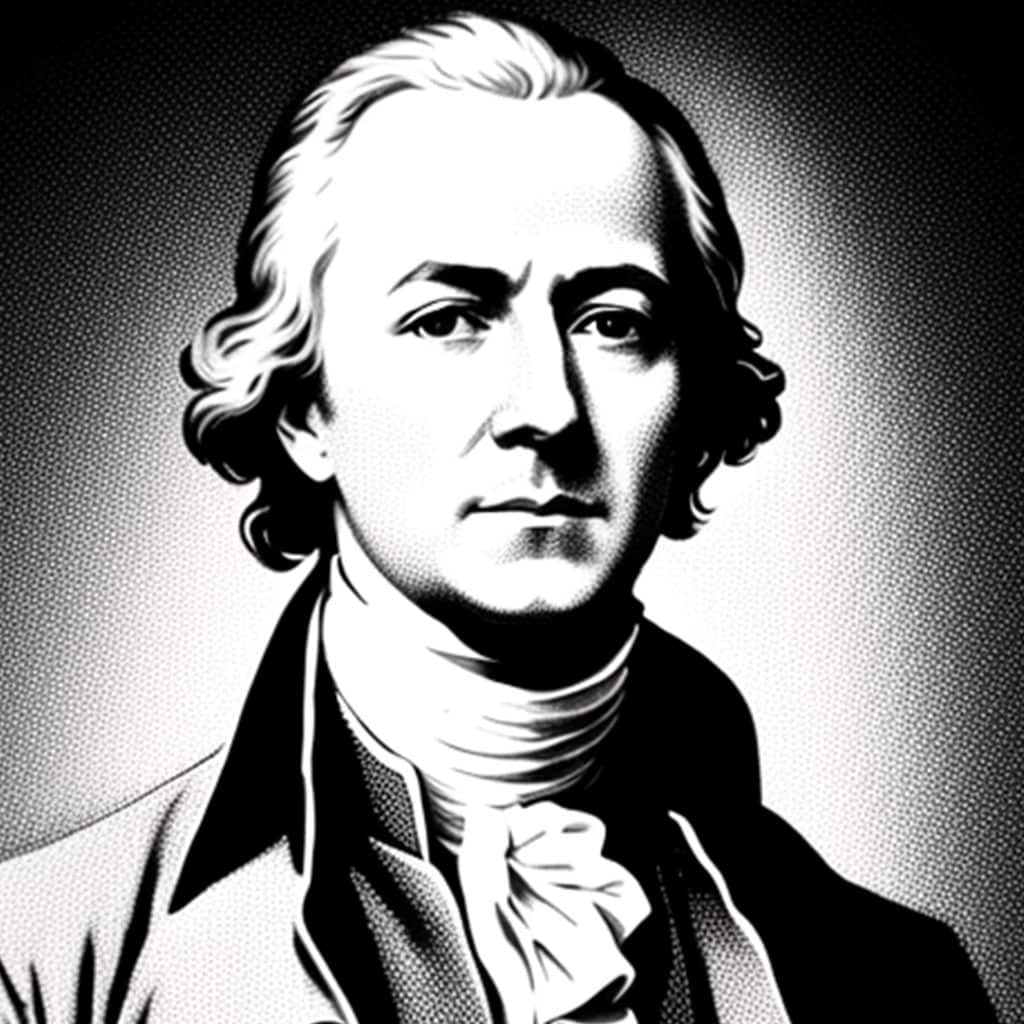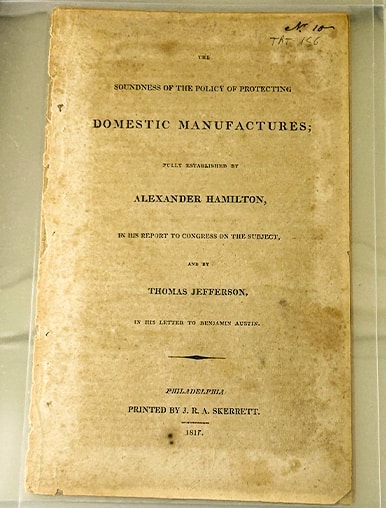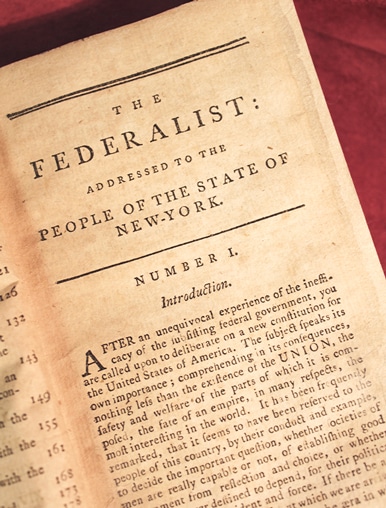REMNANT TRUST COLLECTION
Alexander Hamilton

“In framing a government which is to be administered by men over men, the great difficulty lies in this: you must first enable the government to control the governed; and in the next place, oblige it to control itself.”
– Hamilton
b. 1757 CE – d. 1804 CE
American statesman and economist, Alexander Hamilton was born as a British subject on the island of Nevis in the West Indies. In 1774-75, he wrote two influential anonymous pamphlets, which were attributed to John Jay.
He organized an artillery company, was awarded its captaincy on examination, won the interest of Nathanael Greene and George Washington by the proficiency and bravery he displayed in the campaign of 1776 around New York City, joined Washington’s staff in March 1777 with the rank of lieutenant-colonel, and served as his private secretary and confidential aid for four years.
After a year’s service in Congress in 1782-83 following the war, he settled down to legal practice in New York. A delegate from New York, he supported James Madison in inducing the Convention to exceed its delegated powers and summon the Federal Convention of 1787 at Philadelphia. Though fully conscious that monarchy in America was impossible, he wished to obtain the next best solution in an aristocratic, strongly centralized, coercive, but representative union. His plan has no chance of success; but though unable to obtain what he wished, he used his great talents to secure the adoption of the Constitution by writing his greatest work, The Federalist alongside James Madison and John Jay, in what remains to be known as a classic commentary on American constitutional law and the principles of government.
When the new government was inaugurated, Hamilton became Secretary of the Treasury of Washington’s cabinet. There came from his pen a succession of papers that have left the strongest imprint on the administrative organization of the national government – two reports on public credit and a a report including 1020 arguments for a national protective policy. Once resigning his position, he returned to practice law in New York where he died in a duel with Aaron Burr.


